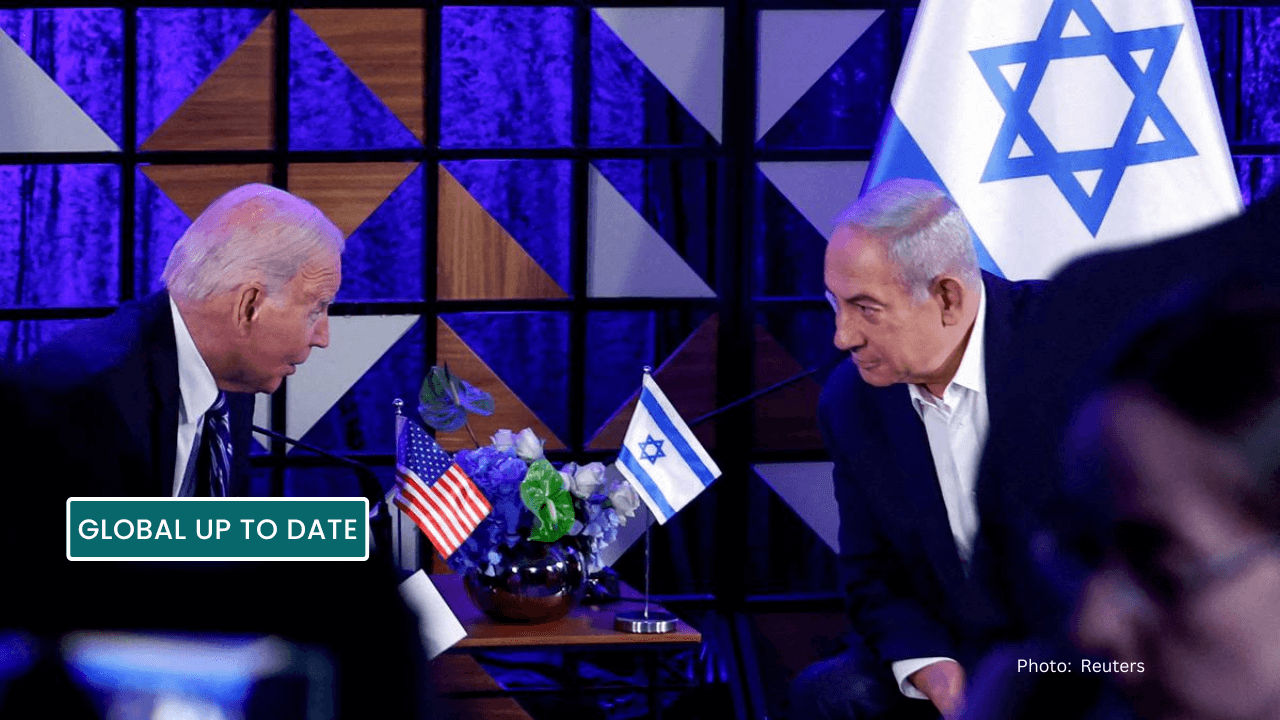Shifting Sands: US-Israel Rift Amidst Gaza's Conflict
Shurat Rana Rushmi | 29 April 2024
In the midst of the continued conflict in Gaza, tensions have risen between the United States and Israel following Hamas attacks on October 7. A series of events have led to this tension. To start, the US chose not to use its veto power in a UN Security Council vote regarding a Gaza ceasefire and the release of hostages held by Hamas. the US has expressed concerns about human rights violations by Israel and is considering imposing sanctions on an Israeli military unit for alleged misconduct.
Contrary to Israel's preference for a veto, the United States took an unconventional step by abstaining from a resolution advocating for an immediate Gaza ceasefire on March 25. This created further tension between the long-time allies. As a deviation from their usual strong support for Israel Netanyahu in reaction criticized the US abstention. The US clarified its position by noting that the resolution was not legally binding despite differing opinions within the UN Security Council. The abstention highlighted the complexity of the US-Israel relationship while symbolic. It's worth noting that this was not the first time the US abstained from a significant UN Security Council vote regarding Israel.
The latest Country Reports on Human Rights Practices from the United States have highlighted human rights violations in Gaza by Israel. It is worth mentioning that the report highlights a shared responsibility between the two countries for these abuses during the conflict. Attributing the deterioration of human rights in the region to the ongoing conflict between Israel and Hamas, US Secretary of State Antony Blinken has expressed serious concerns about the situation. The report's 103-page section on Israel documents credible reports of various human rights violations, including extrajudicial killings, torture, arbitrary detention, sexual violence, the punishment of family members for alleged offenses, and unlawful killings by both Hamas and the Israeli government.
Due to alleged human rights violations in the West Bank, there is a discussion in the United States about potentially imposing sanctions on the "Netzah Yehuda" battalion of the Israel Defense Forces. These sanctions would prevent the transfer of the US military equipment or any other aid to the battalion. This would mark the first time the US has directly targeted an IDF unitif enacted. Prime Minister Netanyahu criticized the potential move as absurd and morally reprehensible, particularly as Israeli soldiers are engaged in combat against terrorist entities. However, Israel's Walla website reported that the US would not impose sanctions on the Netzah Yehuda unit following Israel's adoption of measures to address the concerns.
It appears premature to suggest a significant shift in US-Israel relations given the substantial financial and military backing that Israel receives from the US. Pro-Palestinian voices may be gaining attention recently, but the influence of pro-Israeli interests in the universities of US has long been dominant, overshadowing support for Palestine. Even while attaining deterrence and security is difficult, the ultimate goal still stands in spite of recent events like the attack on October 7, which had a significant impact on Israel. There might be a concern within the US government about potential escalation involving Israel, Hezbollah, and Iran going forward. Should Israel lose international support regarding Gaza, it could potentially leave them vulnerable in such a situation. As a result, Israel's allies, notably the US, play a critical role in navigating these intricate geopolitical challenges.
Shurat Rana Rushmi is a Research Associate at CGS
The views expressed in these write-up are solely those of the author and do not necessarily reflect the policies of CGS.
